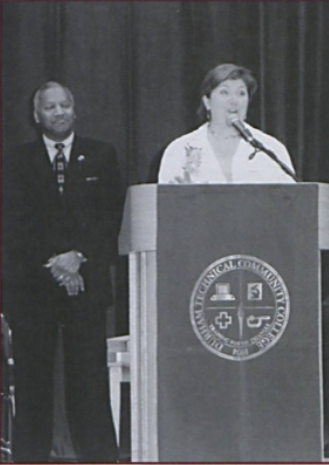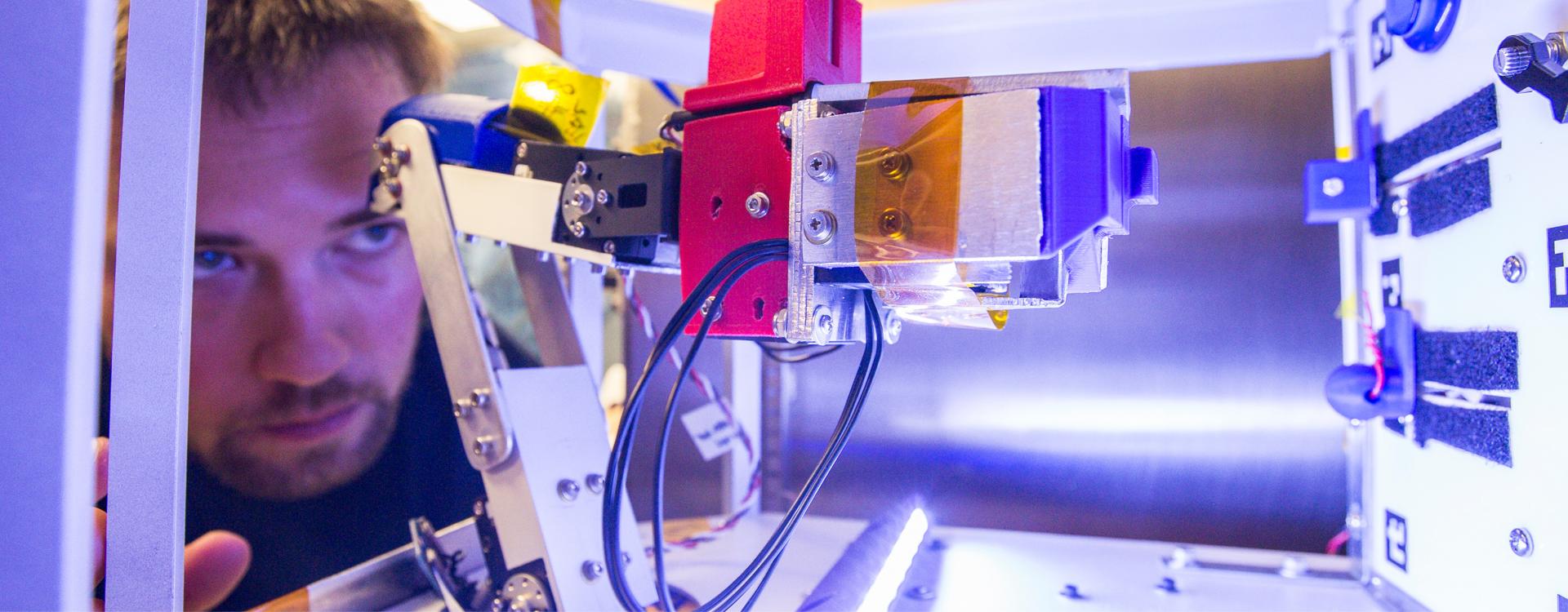60 for 60: Clinical Trials program launches at Durham Tech in 1998, first of its kind in the state
In celebration of Durham Technical Community College’s 60th anniversary, the College is publishing 60 for 60 – a storytelling campaign that highlights the people, places, and events that have progressed and shaped the College’s six decades of impact. To view more 60 for 60 stories, visit www.durhamtech.edu/60for60.

Behind every new clinical trial is a team of individuals trained to interview, collect data, enter data, monitor programs, and ensure everything adheres to government mandates and industry standards.
In the mid-1990's, the City of Medicine was in dire need of clinical trials professionals due to the boom in clinical research from institutions like GlaxoSmithKline, Duke Medical Center, and UNC Hospitals.
Demand for jobs skyrocketed and Durham Tech was ready to respond.
Lee Ferrell, a board member with the local chapter of the Society of Clinical Research Associates, said there were thousands of trials going on in the area and the need for comprehensive training was great. At the time, the Society was providing continuing education programs through Duke University Medical Center but could not keep up with demand.
Ferrell approached Durham Tech in 1996 with the idea of starting a two-year degree program for clinical trials, and in 1998, the program was approved.
The Clinical Trials Research Associate program became the first and only program in North Carolina, and GlaxoSmithKline donated $500,000 to purchase equipment needed to get it started.
The program began in Fall 1998 with 45 seats available.
Carol Connell was the first program director, followed by Melissa Oakley Ockert in 1999.
“I was hired as the Clinical Coordinator but received word from Dean, Don Kritsch two weeks before I started that the current director was relocating and how did I feel about coming in as director. I had to contact my colleagues in the industry and beg them to take students for fieldwork because there was no other academic program like it and the clinical research industry had never worked with an academic program teaching students these critical skills,” Ockert said. “Fortunately, these wonderful colleagues stepped up and supported the program from the start. Many are still engaged as part of our advisory committee.”
Since the CTRA program began, two related programs were also added: Data Management Certificate and the Medical Product Safety/Pharmacovigilance Certificate.
“Our curriculum had to evolve with the times,” Ockert said. “The clinical research industry is one of tremendous technological and regulatory change. It was critical that we remain current to ensure our students are learning the most up to date information.”
Nearly 1,000 students have completed the program and certificates since their inception, including Makayla Klenke.
“I had a great experience in the program. All of the information I learned was extremely useful and I apply those things in my profession today. Though some of the projects were challenging, they provided me with experience that is of value in real-life clinical research situations and prepared me for responsibilities most clinical research professionals have,” she said. “The internships I had through Durham Tech were also very helpful, as they gave me better insight into what working in the clinical research field would actually be like and provided me with the opportunity to assess my interests in order to better determine which route I wanted to take when I graduated.”
Klenke secured employment two months before completing the program and today serves as a Feasibility Analyst for CATO SMS.
 Dr. Bill Gluck served on the advisory committee for the program since it began and in 2014 he stepped in to serve as director. He largely contributed to the data management content designing the Data Management certificate courses. He retired in June 2020.
Dr. Bill Gluck served on the advisory committee for the program since it began and in 2014 he stepped in to serve as director. He largely contributed to the data management content designing the Data Management certificate courses. He retired in June 2020.
Over the years, Durham Tech has established great relationships with local institutions to further the program, including with NC Biotechnology Center, Association of Clinical Research Professionals, Society of Clinical Research Associates, UNC School of Medicine, Syneos Health, and most recently, Duke Clinical Translational Science Institute.
Earlier this year, two Durham Tech students were selected to participate in Duke’s Clinical Research Equity Scholars Program, which is designed to provide students with an opportunity to contribute to the development of innovative strategies for improving equitable practices and diversity in clinical research.
"This partnership is critical not only to support our ongoing commitment to equity initiatives within Durham Tech, but also to improve diversity in and access to clinical research within our community and beyond,” Ockert said.
Several CTRA graduates were also involved in developing the COVID-19 vaccine, including Dayo Thompson, who worked at the UNC School of Medicine Department of Global Health and Infectious Diseases. He supported a phase three clinical research trial to evaluate the effectiveness of the Moderna COVID-19 vaccine.
“It’s a great opportunity to learn more about the team effort it takes to collect data and ensure participant safety when bringing a new therapeutic to market to help improve public health,” Thompson said. “I am excited to be able to contribute to research that will help with efforts to prevent more people throughout the world from catching COVID-19.”
Durham Tech remains the only community college in the state to offer CTRA associate degree and certificate programs. The CTRA program was also the first in the state and second in the country to earn full accreditation from the Commission on Accreditation of Allied Health Education Programs (CAAHEP).
Learn more about the Clinical Trials Research Associate program.

